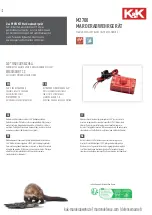
3-1
3. Configuration and overview of the water supply unit
This chapter describes standard specifications of the water supply unit. If you have purchased a customized
product, some information in this chapter may not be applicable to your unit. Refer to the separately supplied
delivery specifications and other documents to check the product specifications in such a case.
3.1
Specifications of the water supply unit
Caution
Do not use this unit under any conditions other than those provided in
the specifications. Otherwise, electric shock, fire, water leakage, or
property damage may occur.
Note
If the inflow pump head is 5m or more, contact Teral for consultation.
Table 3-1 Standard specifications of water supply unit
Operation mode
WX3
: 2-pump Parallel, 3-pump Rotation
TX3
: 3-pump Parallel, 3-pump Rotation
TX4
: 3-pump Parallel, 4-pump Rotation
FX4
: 4-pump Parallel, 4-pump Rotation
FX5
: 4-pump Parallel, 5-pump Rotation
GX5
: 5-pump Parallel, 5-pump Rotation
Control method
Estimated terminal pressure constant control / Discharge pressure constant control
by frequency control
Applicable
liquid
Liquid
property
Fresh water
Temperature
0 to 40°C
Installation location
Indoors (0 to 40°C, Max. RH85%, no condensation), Altitude: Max. 1,000m
Suction conditions
Inflow (Inflow pump head: Max. 5 m)*
Pump
(Material)
NX model stainless steel horizontal multistage centrifugal pump
(Impeller: SUS304, Casing: SCS13, Main shaft: SUS304)
Motor
Type
Totally-enclosed fan-cooled type for indoor use
Protection
class
IP44
Number of
poles
2 poles
Flange
Suction:Dedicated companion flange, Discharge: JIS Flange
Power supply
1.1 to 7.5 kW: 3-phase 200/200-220 V (50/60 Hz)
Paint color
Common base: Munsell N-5
Pressure tank: Munsell 10Y5.5/0.5
Pressure tank
Model DPT20 (20L diaphragm tank)
Pressure detection device
Pressure transmitter:
Transmission system: 5 VDC, 3-wire system
Output voltage: 0.5 to 3.5 V DC
Control
panel
Model
BQNXC type
Motor
Protection
Inverter (with electronic thermal protection)
Normal
indications
Indicator lamp:
Power supply, Pump operation (per pump), Pump operation inhibition (per pump), Failure (all)
Other indications:
Discharge pressure, Voltage, Current (per pump), Operating frequency (per pump), Cumulative
operation time (per pump), Cumulative number of starts (per pump), Number of start times of the
unit on the previous day, Alarm log (last 5 alarms)
Alarm
indications
Receiver tank full, Receiver tank low, Dry-run prevention, Electrode failure, Start frequency failure,
Pressure transmitter 1 failure, Control panel high temperature, EEPROM error, Overload (per
pump), Discharge pressure abnormal drop (per pump), Electric leak (per pump), High temperature
(per pump), Flow switch failure (per pump), Overcurrent (per pump), Overvoltage (per pump),
Stall prevention (per pump), Inverter overload (per pump), Open-phase output (per pump), Inverter
overheat (f per pump), Communication failure (per pump), Inverter trouble 1 (per pump), Inverter
trouble 2 (per pump)
External
outputs
Power supply for alarm (at power voltage), Inflow solenoid valve output (at power voltage),
Operation/alarm signal (No-voltage a-contact)
External
inputs
External stop signal (interlock): supports a/b-contacts
*
The negative suction models support up to 4 m in the actual pump head and up to 6 m in the total pump head (at 20°C water
temperature).
*
If a flush valve or the like is used, a sudden pressure drop may occur, thus leading to the problems such as insufficient water
supply, noise, premature damage of the pressure tank, or others. Contact us for such cases.









































